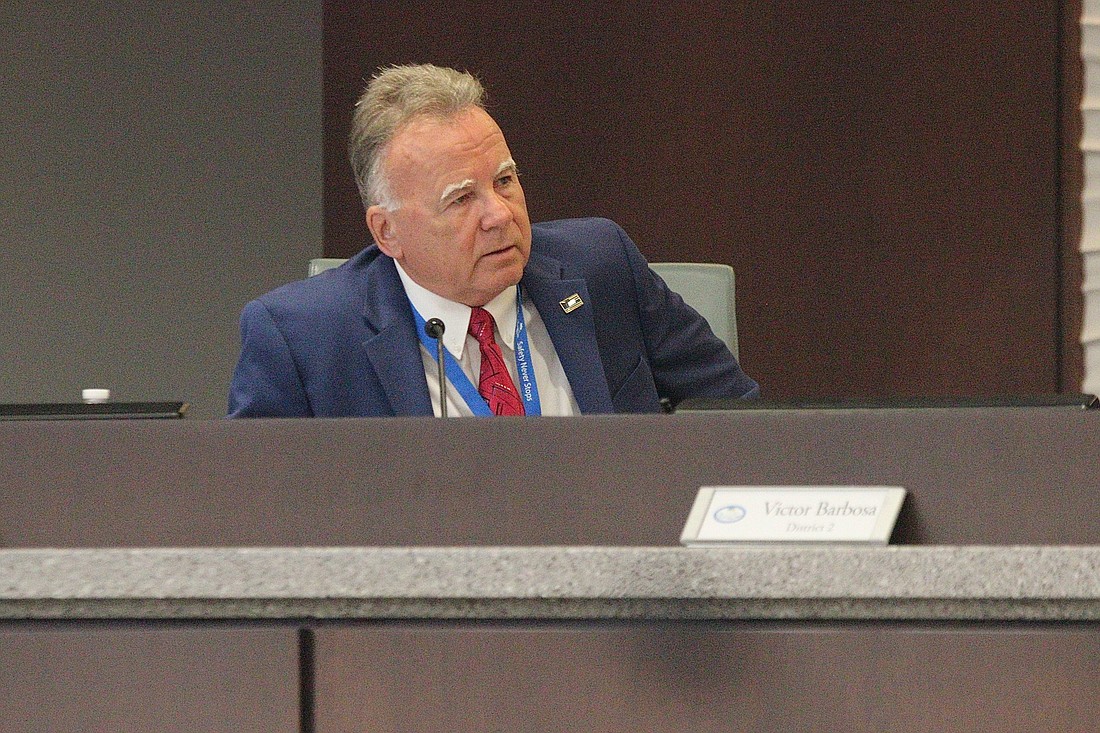- April 23, 2024
-
-
Loading

Loading

Palm Coast's high-speed fiber network — known as FiberNET and used by the Flagler County Sheriff's Office and by Flagler Schools as well as the city government for internet access — narrowly survived a July 6 City Council meeting after a city councilman proposed ending it.
"This is really, really important for our city to operate. ... What you're saying is if something were to take it down, you wouldn't want to have it repaired."
—NICK KLUFAS, city councilman
A major discussion of the fiber broadband network was not expected at the meeting: FiberNET was on the agenda only in the form of a consent-agenda contract that would let the city call in two firms on an as-needed basis for emergency repairs.
City Councilman Ed Danko referred to the network as a boondoggle.
"I have a question: Why are we still wasting money on this?" he asked at the meeting.
"On the infrastructure that our city runs on?" replied Councilman Nick Klufas, a software engineer who's long championed the FiberNET system.
"On fiber," Danko replied. "Isn't that what AT&T and Spectrum should be doing? Isn't that what SpaceX is now doing with satellites? This is a losing proposition."
Klufas replied that FiberNET is run as an enterprise fund — it makes its money by charging customers — and has made back the millions the city initially invested in it many times over, when accounting for payments from the customers and for savings to the city government because it doesn't have to pay a private company for the internet connections.
City Councilman Ed Danko referred to the network as a boondoggle, while city staff said the network has made money, not lost it.
Danko said the city shouldn't be competing with private enterprise, and that new technology might make fiber obsolete.
Klufas said the city decided to build FiberNET's 50-mile fiber backbone over a decade ago because the private providers at the time weren't serving the Palm Coast adequately.
"The reason we're competing against private industry here is that they failed to provide a product and service," Klufas said. That service, he added, is a necessity for many local businesses.
The city can also use the fiber network to incentivize businesses to move to Palm Coast by offering them internet service, Klufas said. That form of incentive provides a large cost savings to the recipient at minimal cost to the city, he said.
Private internet providers, he added, could tap into the existing fiber backbone and then build out the last mile to homes, and sell internet to residents and businesses for a lower cost than they'd be able to offer if they had to create the whole 50-mile fiber backbone themselves.
City Attorney Bill Reischmann noted that the agenda item was about maintaining the existing network, not expanding it. He suggested the council determine the consequences of not maintaining the network.
"We shut this thing down and end it, that's the consequences," Danko said.
"And then the sheriff loses all internet connectivity?" Klufas said. "The school [district] no longer has internet connectivity? All of the private ISPs that we partner with, they also are no longer be able to operate?"
"They'll have to go buy new service," Danko said.
"That is very poor risk management — " Klufas said.
"I don't need a lecture from you," Danko interjected, cutting Klufas off before Councilman Eddie Branquinho, serving as acting mayor, asked the councilmen not to speak over one another.
When Klufas motioned to approve the contract, no one seconded his motion, and it failed.
"There is no ISP to call that will repair us," Klufas said. "This is really, really important for our city to operate. ... What you're saying is if something were to take it down, you wouldn't want to have it repaired."
He added that there are third-party ISPs on the network, and the city is responsible for providing a certain level of service.
Reischmann asked city staff if the city had contractual obligations it wouldn't be able to meet if it didn't approve the maintenance contract. A staff member said that it does — chiefly, a contract with the school district.
Councilman Victor Barbosa asked city staff if it was true, as Klufas had asserted, that the fiber network has made back more money than the city has put in. A city staff member replied that it has.
The council voted 3-1 to approve the maintenance contract, with Danko dissenting.